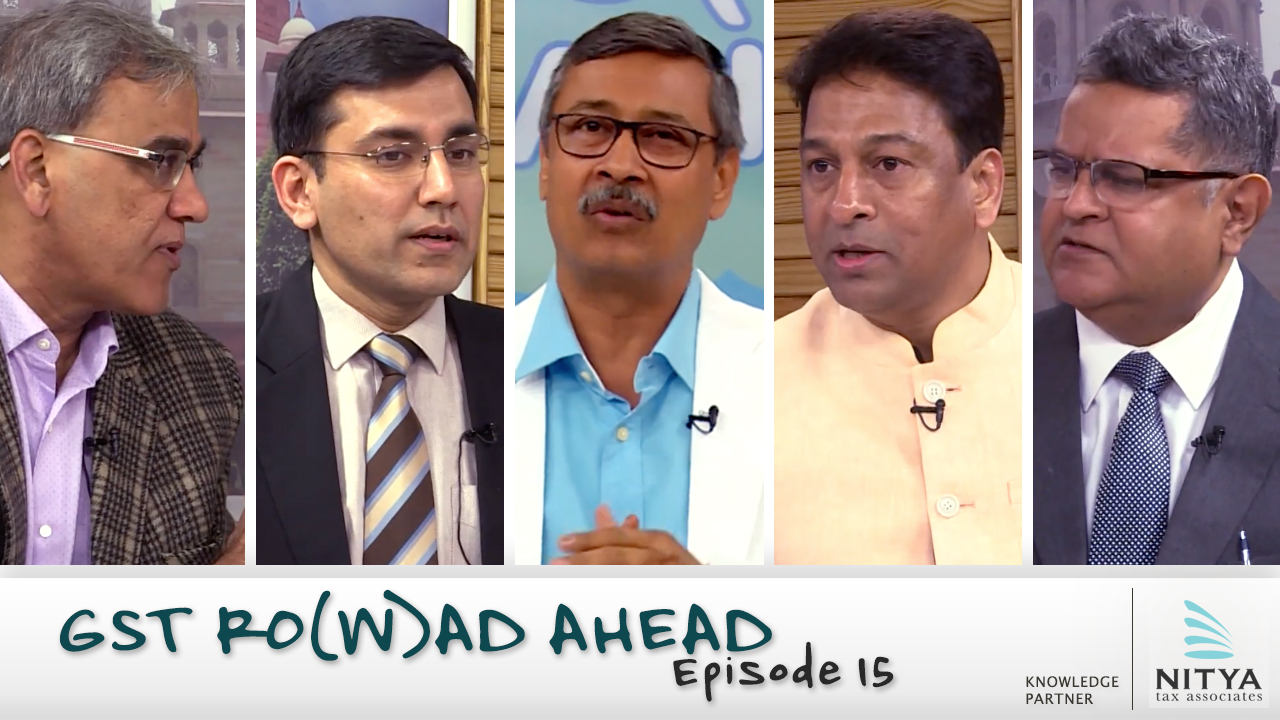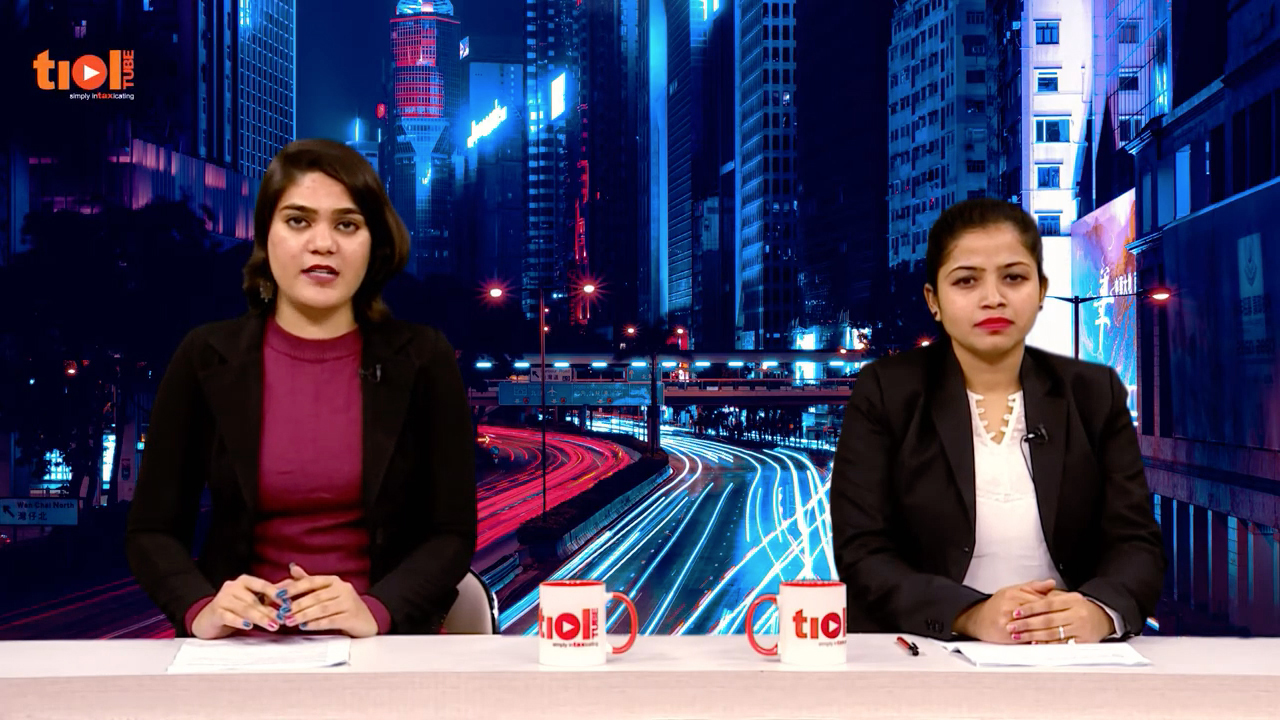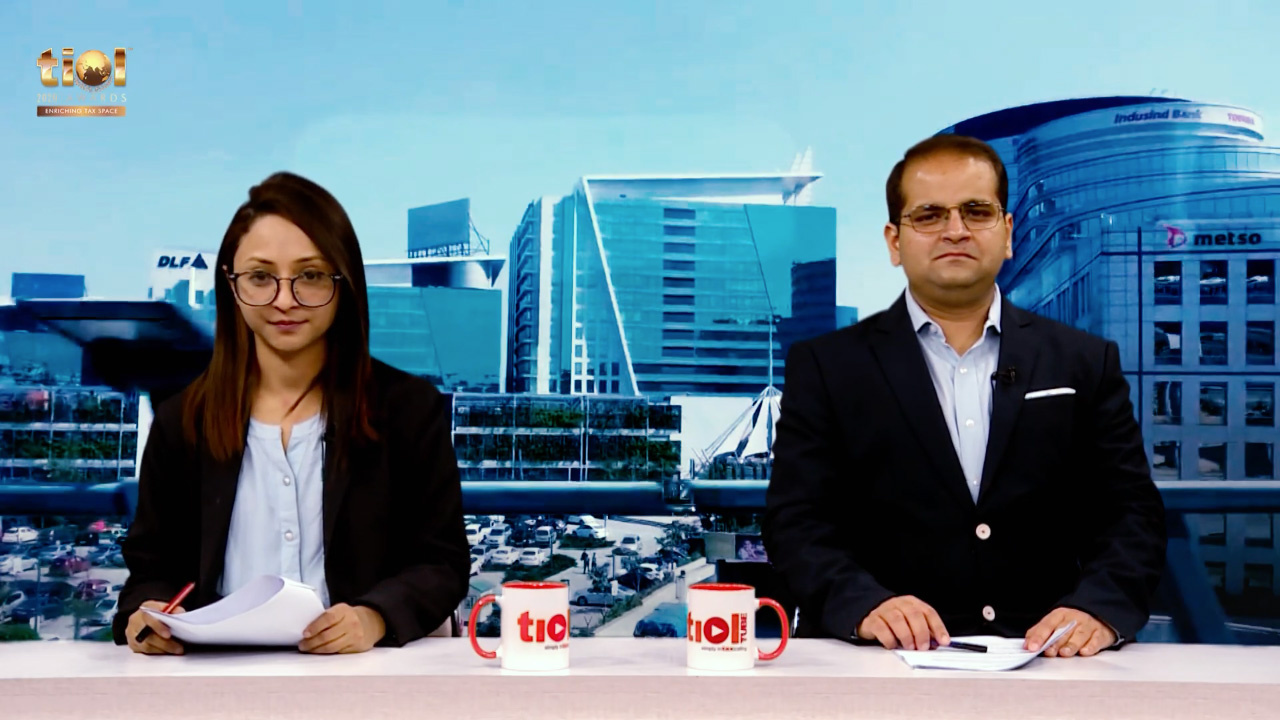|
SERVICE TAX
2020-TIOL-666-CESTAT-ALL
Sai Construction Company Vs CCE
ST - After rejecting the request for adjournment and after going through the memo of appeal, the service tax stands confirmed against the assessee under various categories of services relatable to construction activities - The assessee submitted that the contracts awarded by Greater Noida Development Authority are basically for the general public and for non-commercial purposes, therefore these contracts do not fall within the ambit of the statutory definition of Commercial or Industrial Construction Services - That construction works at NSEZ, Noida have been done for NBCCL who are the authorized developer of NSEZ and works relating to EWS Housing is not taxable as these are not activities of commerce on industry - It is seen that various activities of the assessee were required to be considered separately based upon the contracts - Many of the issues stand decided by precedent decision of Tribunal - As each and every contract is required to be examined separately, the impugned order is set aside and matter is remanded to Original Adjudicating Authority for fresh examination in the light of the precedent decisions of the Tribunal - The assessee would not seek unnecessary adjournment and would cooperate with the Adjudicating Authority: CESTAT
- Matter remanded: ALLAHABAD CESTAT
CENTRAL EXCISE
2020-TIOL-91-SC-CX
CCE Vs UNI Products India Ltd
CX - Whether 'Car Matting' would come within Chapter 57 of CETA under the heading 'Carpets and other textile floor coverings' or they would be classifiable under Chapter 87 which relates to 'Vehicles other than Railway or Tramway Rolling-stock and Parts and Accessories thereof' - assessee wants their goods to be placed under Chapter heading 5703.90 - Tribunal held that 'Car mattings' are correctly classifiable under CH 5703 - Aggrieved, Revenue has filed Civil Appeals before the Supreme Court.
Held: 'Common parlance test', 'marketability test', 'popular meaning' test are all tools for interpretation to arrive at a decision on proper classification of a tariff entry - these tests, however, would be required to be applied if a particular tariff entry is capable of being classified in more than one heads - so far as the subject-dispute is concerned, Tribunal found that though in common parlance the products involved may not be considered as carpets, in view of the wordings of the chapter, section notes, chapter notes and explanatory notes, the goods were classifiable under chapter heading 5703 9090 - there is no error in such reasoning - Chapter 87 of the CETA does not contain 'car mats' as an independent tariff entry - All the parts and accessories listed against tariff entry 8708 are mechanical components and revenue wants 'car mats' to be included under the residual sub-head 'Other' in the same list - HSN explanatory notes dealing with interpretation of the rules specifically exclude 'tufted textile carpets, identifiable for use in motor cars' from 87.08 and place them under heading 57.03 - Revenue's argument is that the Explanatory Notes have persuasive value only, however, the level or quality of such persuasive value is very strong as observed in the judgments of apex court cited - There is no reason as to why the Bench should make a departure from the general trend of taking assistance of these Explanatory Notes to resolve entry related dispute - Main argument of the appellant Revenue is that because the 'car mats' are made specifically for cars and are used also in cars, they should be identified as parts and accessories - But if the Bench goes by that logic, textile carpets could not have been excluded from Parts and Accessories - Tribunal on detailed analysis of various entries, Rules and Notes have found that the impugned goods fit the description of the goods under chapter heading 5703 9090 - Bench accepts this finding of the Tribunal - Once the subject goods are found to come within the ambit of that sub-heading, for the sole reason that they are exclusively made for cars and not for 'home use' (in broad terms), those goods cannot be transplanted to the residual entry against the heading 8708 - Tribunal decision is sustained and Revenue appeals are dismissed: Supreme Court [para 23, 24, 25, 26, 27] - Appeals dismissed: SUPREME COURT OF INDIA 2020-TIOL-665-CESTAT-ALL
Rathi Steel And Power Ltd Vs CCE
CX - Rule 8(3A) of CER - Additional Commissioner, Central Excise, Ghaziabad through his letter dated 15.12.2016 referring to appellant's letter dated 28.11.2016 addressed to Commissioner informed that the appellant had paid defaulted Central Excise duty of around Rs.3 crores with applicable interest of around Rs.15 lakhs and, therefore, no further action from the end of Revenue was warranted - Subsequently, on 17.07.2017, Assistant Commissioner issued a show cause notice to the appellant calling upon the appellant to show cause as to why penalty @ 1% of the defaulted amount of Central Excise duty should not be imposed on them as provided under Rule 8(3A) of Central Excise Rules, 2002 - original authority imposed penalty as proposed in SCN and this order was upheld by Commissioner(A), hence appeal to CESTAT.
Held: Letter dated 15.12.2016 was decision of revenue, communicating that no further action was warranted from the end of revenue, therefore, if revenue wished to initiate proceedings for imposition of penalty under Rule 8(3A) then revenue should have approached Commissioner (Appeals) challenging the letter dated 15.12.2016 issued by Additional Commissioner - After the appeal period for filing appeal before Commissioner (Appeals) from the date of issue of the said letter dated 15.12.2016 that no further action was warranted, was over the said decision has become final - SCN dated 17.07.2017 is, therefore, not sustainable - impugned order set aside and appeal allowed with consequential relief: CESTAT [par 5, 6]
- Appeal allowed: ALLAHABAD CESTAT
2020-TIOL-664-CESTAT-MAD
Servo Packaging Ltd Vs CGST & CE
CX - Assessee made a request for refund of the Customs Duty paid, due to unfulfilled export obligation against Advance Authorization, under Section 142(3) of the C.G.S.T. Act, 2017 - It is the case of the appellant that since the inputs imported by it were used in the manufacture of final products on which Central Excise Duty/G.S.T., as the case may be, was paid/to be paid, they were eligible for refund of CVD and SAD paid - Further, post the introduction of G.S.T, the appellant having left with no option to claim the above credit under the CENVAT Credit Rules with also no scope to report the same under Transitional Credit while migrating to G.S.T., the refund in cash was claimed under Section 142(3) ibid - Adjudicating authority intimated that the refund claim of the assessee in respect of Customs Duty (i.e. CVD and SAD) which were legitimately payable, having been paid for non-fulfilment of the conditions of import under Advance Licence, was not covered under Section 142 ibid and consequently, the refund was rejected - Commissioner(A) upheld this order, therefore, appeal to CESTAT.
Held: Availability of CENVAT paid on inputs despite failure to meet with the export obligation may not hold good here since, firstly, it was a conditional import and secondly, such import was to be exclusively used as per FTP - Moreover, such imported inputs cannot be used anywhere else but for export and hence, claiming input credit upon failure would defeat the very purpose/mandate of the Advance Licence - Hence, claim as to the benefit of CENVAT just as a normal import which is suffering duty is also unavailable for the very same reasons, also since the rules/procedures/conditions governing normal import compared to the one under Advance Authorization may vary because of the nature of import - The import which would have normally suffered duty having escaped due to the Advance Licence, but such import being a conditional one which ultimately stood unsatisfied, naturally loses the privileges and the only way is to tax the import - The governing Notification No. 18/2015-Cus, paragraph 2.35 of the FTP which requires execution of bond, etc., in case of non-fulfilment of export obligation and paragraph 4.50 of the HBP read together would mean that the legislature has visualized the case of non-fulfilment of export obligation, which drives an assessee to paragraph 4.50 of the HBP whereby the payment of duty has been prescribed in case of bonafide default in export obligation, which also takes care of voluntary payment of duty with interest as well - Admittedly, the inputs imported have gone into the manufacture of goods meant for export, but the export did not take place - At best, the appellant could have availed the CENVAT Credit, but that would not ipso facto give them any right to claim refund of such credit in cash with the onset of G.S.T. because CENVAT is an option available to an assessee to be exercised and the same cannot be enforced by the CESTAT at this stage - There is no question of refund - impugned order is upheld - Appeal dismissed: CESTAT [para 10 to 13]
- Appeal dismissed: CHENNAI CESTAT
CUSTOMS
Cus - Adjudicating authority has imposed a penalty of Rs.10.00 Lakhs on the Steam Agent M/s.MSC Agency (India) Ltd. under section 116 of Customs Act, 1962 for short landing of goods - appeal to CESTAT.
Held: In the impugned Bill of Lading, the term 'Shippers Load Stow & Count' is mentioned in the description - As long as the seal has not been altered or tampered with, the carrier cannot be held liable for the shortage because the carrier was not present at the time of the packing of the container and carrier does not know what the shipper loaded, stowed or counted - Bill of Lading shows details that was provided by the shipper - 'Shipper's Load Stow and Count' is the term seen in the description of the Bill of Lading for the shipment - This term absolves steamer agent/carrier of any claim relating to damaged or missing cargo etc. - appellant has also submitted documents like enquiry report etc. which shows that they were not responsible for any shortage etc. - Moreover, the department also could not produce any proof against the Steamer Agent and imposed penalty mechanically - Order is set aside and appeal is allowed with consequential relief: CESTAT [para 6 to 8]
- Appeal allowed: KOLKATA CESTAT
Cus - It was observed by the department that as per the Import Policy, the goods "Stainless Steel Plates, Sheets & Strips" requires compliance of mandatory BIS standards and the item under import does not figure in the list of exempted stainless steel grades, therefore, the goods under import need to be of BIS registered and since importer did not possess such a BIS registration certificate for the clearance, it appeared that the appellant has contravened the provisions of FTDR Act, 1992 read with the prohibitions imposed under the Steel and Steel Products (Quality Control) Order, 2018 - original authority passed an order directing absolute confiscation of the goods having assessable value of Rs.10,47,107/- and also directing for safe destruction of the goods at the cost of the importer besides imposing penalty of Rs.10,000/- under Section 112 (a) of the Customs Act, 1962 - Commissioner (Appeals) modified the order by setting aside the direction for absolute confiscation and destruction of the goods at the cost of the appellant - The goods were allowed to be redeemed on condition of re-export after payment of redemption fine which was directed to be quantified by the adjudicating authority within 15 days - however, penalty imposed was not disturbed - importer is before CESTAT.
Held: Appellant has mainly contested the order given by the Commissioner (Appeals) to redeem the goods for the purpose of re-export only - Appellant has relied upon Tribunal Mumbai Bench Final Order No. A/87587-87588/2018 dt. 24.09.2018 wherein the Tribunal after referring to Section 125 of the Customs Act, 1962 as well as various decisions have observed that no such condition that the goods can be redeemed only for re-export can be imposed - A similar view was also taken in the case of HBL Power Systems Ltd. - 2018-TIOL-2833-CESTAT-HYD - and this order has been affirmed by Andhra Pradesh High Court - in view of the cited decisions, order passed by the Commissioner (Appeals) that the goods can be redeemed only for re-export is unjustified - As already directed by the Commissioner (Appeals), the adjudicating authority shall quantify the redemption fine payable by the appellant within 30 days - appeal is partly allowed: CESTAT [para 6]
- Appeal partly allowed: CHENNAI CESTAT |
|








